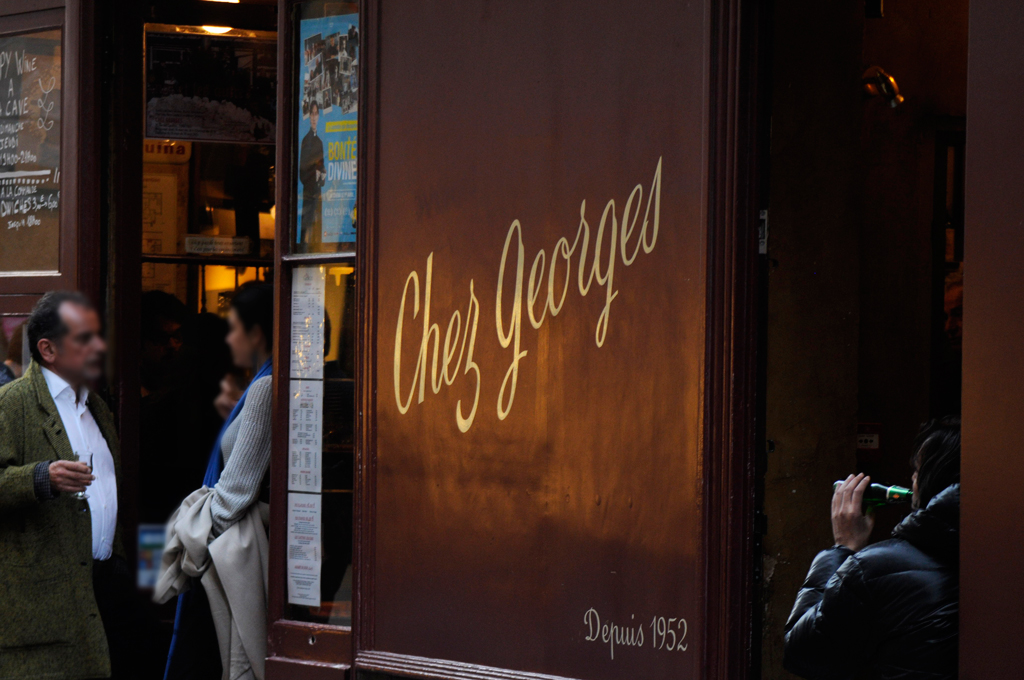Les Boîtes de nuit de St Germain des prés
In 1945, Montmartre native Henri Leduc opened his Bar Vert at 10 rue Jacob. There he served café au lait to the tiny milieu of film and letters. Prévert was a regular and the establishment was soon taken over by Bernard Lucas, who, understanding the mood of the times, began to look for a place that could be “zee place to bee” in Paris right after the war.
With his friend Frederic Chauvelot, Lucas approached a little café at 33 rue Dauphine, at the corner of rue Christine (current site of the Hôtel d’Aubusson). The establishment was run by a couple of charcutiers (pork butchers) from Toulouse for whom (like so many of their kind) business was profitable. The shop closed late, and the neighbourhood’s night-owls gladly met there. Lucas and Chauvelot suggested to the butchers that they “privatise” their basement and make it into a private club. The Toulousains accepted and Tabou opened on 11 April 1947.
Oft frequented by Boris Vian, Claude Luter, Raymond Queneau, Juliette Gréco, the place became a Left Bank Mecca. The legend of Tabou was born. Tired of the racket brought about by the success of the club, the residents were quickly angered and complained to the 6th arrondissement police. Tabou outraged the good moral standards of the day by celebrating the election of ‘Miss Vice’ or the ‘Apollo’ of Tabou. And that’s not counting the number of themed nights that bear witness to the America-mania of the time: Chicago, Westerns…
Paradoxically: we’ll forever associate this depraved and dissolute youth with existential philosophy, even though it’s nothing to do with Sartre, he held his own amongst these modern dandies.
Tabou, which quickly fell out of fashion, (or was considered to be by its founders, who were always on the look out for something new) was succeeded by the Club St Germain, founded at 13 rue St Benoît for Boris Vian and his friends to play jazz there.
We know, that these establishments that soon became known as nightclubs were to flourish in Paris. The Tabou years were succeeded by the Régine years, the Castel years… real bands were replaced by sound systems and jazz left its place to rock and to all the subsequent musical genres that followed. Sign of the times…

